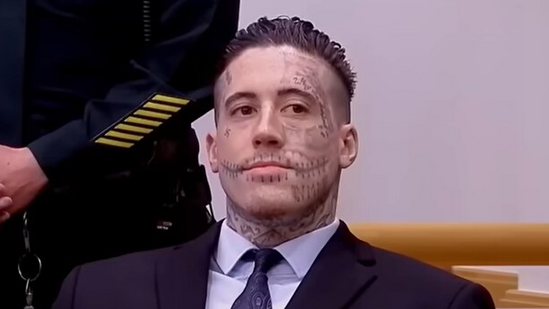The Wade Wilson killer case has become one of the most disturbing and talked-about true crime stories in recent years. The brutal murders tied to Wade Wilson, a Florida man accused of killing two women in 2019, have raised questions about mental health, the justice system, and how such tragedies can be prevented.
This article takes a deep dive into the Wade Wilson killer case, exploring who Wade Wilson is, what happened, and how the investigation unfolded. We’ll also look at where things stand now, the legal battles surrounding the case, and what lessons law enforcement and the public can learn from it.
Who Is Wade Wilson?

Wade Wilson was a 25-year-old man from Cape Coral, Florida. Before the killings, Wilson was known to local authorities for several run-ins with the law. He had a history of drug use and had previously been arrested for crimes including burglary and battery. But no one expected him to become the central figure in one of the most chilling murder cases in the region.
Wilson appeared to live a troubled life. Friends and acquaintances described him as someone who struggled with addiction and mental instability. Unfortunately, those signs would not be fully addressed before two young women lost their lives.
The Murders That Shocked Florida
In October 2019, authorities were called to a grisly crime scene in Cape Coral. Two young women—Diane Ruiz and Krystal Phillips—were found murdered within hours of each other. The community was rocked by the news, and the police immediately launched an intensive investigation.
Victim 1: Diane Ruiz
Diane Ruiz was a 43-year-old woman who worked at a local hair salon. She was last seen walking to work before she mysteriously disappeared. Hours later, her body was discovered in a wooded area. She had been brutally beaten and left to die.
Victim 2: Krystal Phillips
Krystal Phillips, just 35, was found dead in an apartment not far from where Ruiz’s body was discovered. Phillips had recently reconnected with Wade Wilson, and according to police reports, the two had been seen together the night before her death. Her murder scene was equally disturbing, involving extreme violence and clear signs of struggle.
The Arrest of Wade Wilson
As evidence was gathered, suspicion quickly turned to Wade Wilson. Surveillance footage, witness testimonies, and phone records all placed him near both crime scenes around the time of the murders. He was arrested on October 7, 2019, and charged with two counts of first-degree murder.
What stunned investigators the most was not just the brutality of the crimes but Wilson’s behavior following the killings. After the murders, he posted a video to social media in which he spoke in a bizarre and detached tone, discussing the events as if he were outside of himself. In the video, he even acknowledged that he had done something terrible, further solidifying public opinion that he was guilty.
Mental Health and the Legal Defense
Following his arrest, Wade Wilson’s legal team hinted that his mental health would be a central part of his defense. Reports suggested that Wilson had a long history of psychological issues, including possible bipolar disorder and drug-induced psychosis.
Defense attorneys argued that Wilson may not have been fully aware of his actions at the time of the murders. However, prosecutors countered with evidence showing that the killings were intentional and calculated. They emphasized that Wilson’s actions after the murders—like trying to flee and deleting data—pointed to a guilty conscience.
The case reignited debate over how the criminal justice system handles defendants with mental illnesses. Should someone who may not fully understand the consequences of their actions face the death penalty? Or should mental health be considered a mitigating factor?
Where Is the Case Now?
As of 2025, the Wade Wilson killer case is still moving through the Florida court system. Wilson has been declared competent to stand trial, and jury selection is expected to begin later this year. Prosecutors are seeking the death penalty, citing the gruesome nature of the crimes and the danger Wilson poses to society.
Public interest in the case remains high, with courtroom hearings often drawing media attention. Victims’ families continue to push for justice while also calling attention to the need for better mental health resources and protections for women at risk of violence.
Community Reactions and Impact
The Cape Coral community was left shaken by the murders. Local organizations held vigils for the victims, and social workers began advocating for stronger protections for vulnerable populations. The tragedy also sparked broader conversations about how early intervention could have possibly prevented the deaths.
Some have criticized the justice system for failing to keep Wilson off the streets, especially considering his prior arrests. Others have focused on the societal failure to provide support for people struggling with mental illness and substance abuse.
Wade Wilson Killer Case in the Media

The Wade Wilson killer case quickly caught national media attention. True crime podcasts, documentaries, and YouTube channels have all covered the story in detail. This intense coverage has kept pressure on authorities to handle the trial transparently and ethically.
However, some argue that the sensationalism around the case detracts from the real issue: two lives were lost, and more could be at risk if systemic issues aren’t addressed.
Lessons Learned from the Wade Wilson Case
This tragic case highlights several key lessons:
1. Mental Health Matters
Wilson’s history of mental instability wasn’t adequately addressed. Had he received proper treatment, the outcome might have been different.
2. Early Intervention Could Save Lives
Wade Wilson had multiple prior arrests and red flags. Better monitoring and intervention may have prevented escalation to murder.
3. Protecting Women
Both victims were women who may have been vulnerable due to their relationships or proximity to Wilson. More focus on protecting women from intimate partner violence is critical.
4. Balancing Justice and Compassion
While the families of the victims deserve justice, the justice system must also consider how to handle mentally ill offenders humanely and responsibly.
What’s Next?
As the trial approaches, more details about the case may come to light. The prosecution is expected to present evidence of premeditation and cruelty, while the defense will likely focus on mental illness and lack of intent. No matter the verdict, this case will likely remain a reference point in discussions about crime, punishment, and mental health in America.
Conclusion
The Wade Wilson killer case is a haunting reminder of the dangers that can arise when mental health issues, substance abuse, and systemic failure intersect. It’s a story of two lives lost too soon, a man at the center of a legal storm, and a community struggling to make sense of it all.
As the legal process unfolds, the hope is that justice will be served—not only through punishment but also by learning from the tragedy to prevent similar ones in the future
Also Read – Eric Bieniemy’s Coaching Journey From Underdog to Top Mentor





